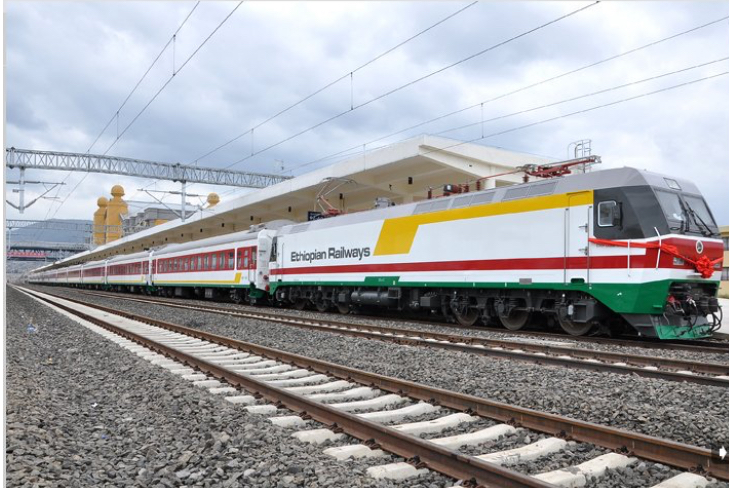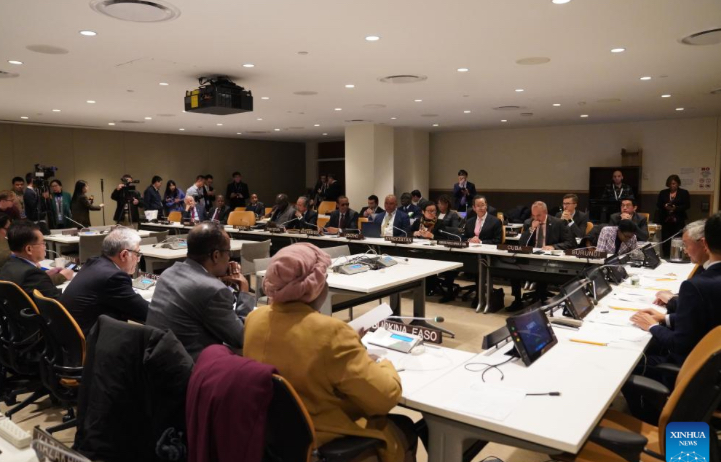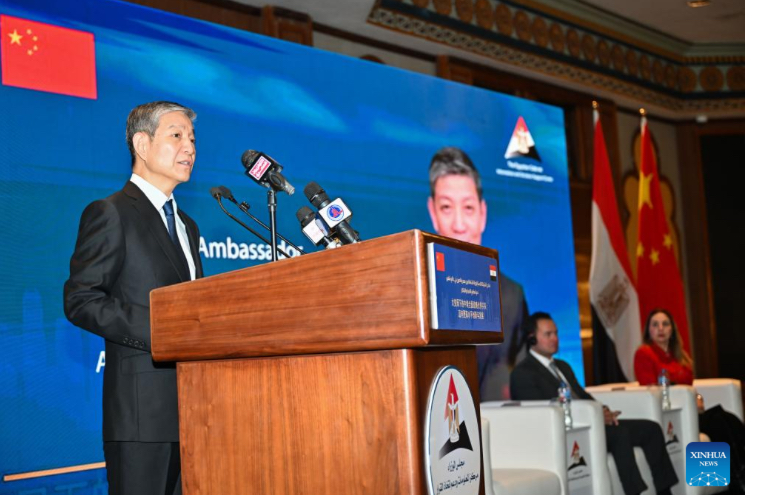By Gerald Mbanda
Recent coverage by Africa Defence Forum (ADF) Magazine on its X platform (October, 22, 2025), hasagain demonstrated the persistent bias that characterizes much of the Western-aligned media’s portrayal of China’s engagement with Africa. In a recent article, the magazine alleged that experts believe the Belt and Road Initiative (BRI) represents a “hazardous development model” for the African continent. Yet, the article failed to name any of these supposed experts, provide evidence for the claim, or offer any factual explanation of what exactly makes the BRI “hazardous.” Instead, it relied on vague insinuations and generalizations that appear designed to undermine China’s growing partnership with Africa rather than to inform readers with credible analysis.
This pattern is neither new nor surprising. Publications such as Africa Defence Forum often serve as communication tools for the United States, to shape public opinion in regions where their strategic influence is waning. It is important to recall that ADF is published by the United States Africa Command (AFRICOM), a military institution whose core purpose is not independent journalism but the advancement of U.S. geopolitical and security interests on the continent. When such an outlet produces a piece attacking China’s development initiatives, it should be read within the context of an information campaign, not as an act of objective reporting.
The accusation that China’s BRI is a “hazardous development model” conveniently mirrors the broader Western narrative that portrays Chinese investment as exploitative, opaque, and unsustainable. Over the past decade, this line of argument has been repeatedly echoed across Western media and think tanks, often without substantial data or balanced evidence. In these portrayals, African countries are depicted as passive victims trapped in so-called “debt diplomacy,” incapable of assessing their own interests. This narrative not only distorts the reality of Africa–China cooperation but also reflects a lingering paternalism that denies African nations the agency to make sovereign decisions about their development priorities.
In practice, the BRI has provided significant infrastructure support to African countries that have long struggled with underdevelopment and limited access to global financing. Across the continent, Chinese involvement has contributed to railways, highways, bridges, ports, energy projects, and telecommunications networks. The Mombasa–Nairobi Standard Gauge Railway in Kenya, the Addis Ababa–Djibouti Railway in Ethiopia, and various hydropower and industrial park projects across the continent are tangible examples of how Chinese cooperation has facilitated regional connectivity and economic growth. While not every project is without challenges—some have faced cost overruns or management issues—these are problems common to all major infrastructure initiatives, including those funded by Western institutions such as the World Bank or the IMF.
Critics often accuse China of “debt-trap diplomacy,” claiming that BRI projects saddle countries with unmanageable loans. Yet numerous independent studies, including those by African and Western economists alike, have found no evidence to support this claim. African nations account for only a small fraction of their total debt to China, and much of that debt is concessional, carrying low interest rates and long repayment periods. Moreover, China has repeatedly restructured or forgiven loans when countries have encountered repayment difficulties. In contrast, Western lending institutions have historically attached strict political and economic conditions that limit policy autonomy and perpetuate dependency.
The ADF article’s silence on these realities suggests its purpose lies not in balanced analysis but in sustaining a geopolitical narrative that paints China as a threat. This strategy reflects the unease in Western capitals over Beijing’s growing influence across Africa. For decades, Western powers maintained dominance through a combination of financial leverage, military presence, and narrative control. As China offers African states an alternative partnership model—based on infrastructure development, trade, and non-interference—the Western response has been to question Beijing’s motives and cast suspicion on its methods.
Ironically, Western media rarely apply the same level of scrutiny to their own governments’ engagements in Africa. Environmental degradation caused by Western oil companies, exploitative mining practices or the destabilizing effects of foreign military interventions receive far less attention. When Western corporations extract Africa’s resources with minimal local benefit, it is presented as “foreign investment.” When China builds railways, roads, and hospitals, it is branded “debt diplomacy.” This double standard reveals the ideological motives behind such reporting and exposes the continuing use of media as a tool of soft power.
Equally troubling is the near-total exclusion of African voices in these discussions. In the ADF article, as in many similar pieces, the perspectives of African policymakers, scholars, and citizens are missing. The analysis is presented entirely through a Western lens, as though Africa were merely a battleground for global influence rather than a collection of nations with their own agency, ambitions, and strategies. This silence reinforces the notion that African countries cannot decide for themselves what kind of partnerships serve their development interests.
Africa deserves better than to be a stage for geopolitical propaganda wars. Constructive criticism of any development initiative, including the BRI, is both necessary and valuable—but it must be grounded in evidence, context, and fairness. Blanket accusations without proof do not advance Africa’s interests; they simply perpetuate misinformation and mistrust. The continent’s future lies in pragmatic, diversified cooperation with all willing partners—whether from the East or West—based on mutual respect and tangible benefits.
The Africa Defence Forum’s attempt to discredit the Belt and Road Initiative without facts or credible sourcing is emblematic of a broader campaign to shape African perceptions against China. Such narratives reflect not journalistic integrity but strategic intent. African nations must remain vigilant in questioning not only the actions of their external partners but also the motives behind the stories told about them. True development and sovereignty begin when Africans define their own narratives, evaluate partnerships by results rather than rhetoric, and resist being used as pawns in the rivalries of others.




If you’re lookin’ for sports betting or casino games, 888WinBet’s got a pretty decent selection. The odds seem fair, and I haven’t had any issues with withdrawals. Check it out for yourself: 888winbet. Always gamble smart!